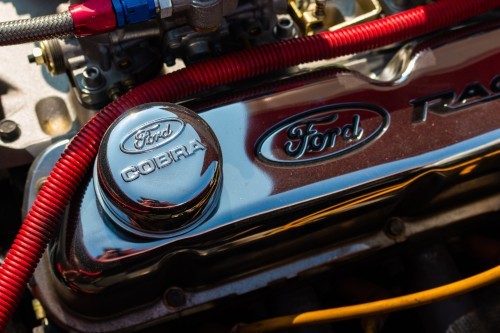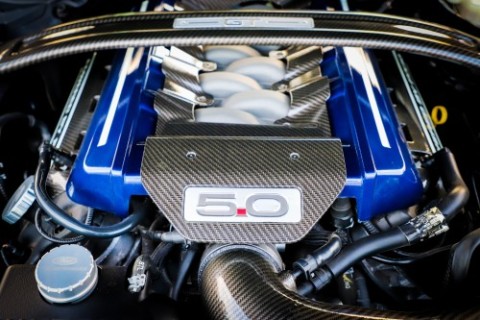With its unique combination of design, performance, and innovative technology, Audi, a renowned brand in the world of luxury vehicles, has long captured aficionados. Drivers wanting a taste of the better things in life have been drawn to the vehicle by the four-ring insignia on the front grille, which stands for dedication to perfection. But even the most prominent manufacturers can face obstacles, and for Audi, they can include problems with the engines.
Common Engine Problems in Audi Vehicles:
Although Audi automobiles are known for their innovative engineering and impressive performance, they can occasionally have special engine-related problems like any other sophisticated machine. It is crucial to be aware of these typical engine issues to make an educated choice when purchasing an Audi or to solve prospective issues as a current owner:
Oil Consumption Issues:
- Timing Chain and Tensioner Problems: Numerous Audi models, including the 2.0T FSI engine, have experienced timing chain and tension problems. These issues may result in misfiring engines, decreased performance, and expensive repairs.

- Carbon Buildup in Direct-Injection Engines: The intake valves of direct injection engines, such as the 2.0T FSI and 3.0T supercharged V6, are prone to carbon accumulation. Reduced power, rough idling, and higher fuel consumption can all be results of this accumulation.
- Transmission Issues: The Multitronics continuously variable transmissions (CVTs) and S tonic dual-clutch transmissions from Audi have been linked to sporadic problems including jerky shifting, delays, or full failure.
- Coolant and Overheating Problems: Coolant leaks and overheating difficulties have been reported with several Audi models, which can be caused by faults with the water pump, thermostat, or radiator. If overheating is not treated right away, engine damage may result.
Audi Engine Models with Persistent Issues:
Although Audi has established a reputation for superior engineering, some engine types and series have shown to be more prone to recurring issues over time. The following Audi engine types and series are well-known for having problems:
Audi A4 (2009-2011) 2.0T FSI:
- Issues: If the issues with the timing chain tensioner on this engine are not fixed right away, it might cost a lot to fix them. It is also notorious for having oil consumption problems, necessitating routine oil monitoring and top-offs.
Audi A3 (2006-2008) 2.0T FSI:
- Issues: Like the A4, these models’ 2.0T FSI engines’ timing chain and tensioner problems might result in engine damage.
Audi Q5 (2009-2012) 2.0T FSI:
- Issues: Timing chain difficulties and oil consumption concerns with the 2.0T FSI engine in the Q5 have been noted by owners, and they may be expensive to fix.
Audi S4 (2004-2009) 4.2 V8:
- Issues: The 4.2-liter V8 engine in the S4 has had timing chain issues, which, if not resolved quickly, might result in severe damage and engine misfires.
Audi A6 (2005-2011) 3.2 V6:
- Issues: There have been gearbox difficulties with some 3.2-liter V6-powered A6 cars, including jerky shifting and gear engagement troubles. Some of these vehicles have also had issues with oil usage.
It is crucial to stress that although these faults have been associated with Audi models and engines, they are not necessarily difficulties that all cars in these series will have. Audi has tried to fix these problems in more recent models and provide impacted owners solutions.

Factors to Consider When Buying an Audi:
It is an exciting decision to buy an Audi, but it is important to make a well-informed decision to make sure you obtain the best car for your requirements and tastes. When buying an Audi, keep the following in mind:
Budget:
- Set a budget that includes not just the purchase price but also the cost of ownership over time, such as gasoline, maintenance, insurance, and probable repairs.
New vs. Used:
- Choose whether you want to purchase a brand-new Audi or a used one. Used automobiles might save you a lot of money, but new cars often include warranties and the newest amenities.
Model Selection:
- Select the Audi model that best fits your demands and way of life. Audi provides various vehicles, including high-performance sports cars, SUVs, and small sedans.
Engine Choice:
- Think over the various engine choices for your preferred vehicle. Analyse elements including engine output, fuel economy, and any known problems with certain Audi engines.
Maintenance History:
- Examine the car’s service history and maintenance logs if you are purchasing a secondhand Audi. A well-kept Audi is more likely to be dependable and deliver higher performance over time.
Warranty Coverage:
- Recognize the warranty protection that Audi offers for brand-new vehicles. Additionally, especially when purchasing a used car, find out whether the car you are interested in still has any warranty coverage.
Pre-Purchase Inspection:
- Make plans for a thorough pre-purchase check by a reputable technician or Audi expert. This examination can find concealed problems and offer assurance.
Ownership Costs:
- Find out what the projected ownership costs will be, such as insurance premiums, taxes, registration charges, and regular maintenance. Due to their luxury reputation, some Audi vehicles may have higher insurance costs.
Resale Value:
- Take your Audi’s future worth into account. When the time comes to sell or trade-in your car, Audi models with high resale values might be a smart investment.
Fuel Efficiency:
- Consider the Audi model’s fuel efficiency, particularly if you have certain requirements for fuel-efficient driving.
Safety Features:
- Look into the availability of innovative safety technologies like blind-spot monitoring, lane-keeping assistance, adaptive cruise control, and automated emergency braking.

Reviews and Test Drives:
- To learn about the advantages and disadvantages of the model you are considering, read reviews written by car experts and Audi aficionados. To determine how the vehicle behaves on the road, always plan a test drive.
Extended Warranties:
- Consider investing in an extended warranty or service plan to prolong the manufacturer’s warranty coverage and give assurance against any future repairs.
How to Mitigate Risks with Audi Engines:
Although owning an Audi may be a joy, it is important to take preventative measures to lower the dangers brought on by probable engine issues. Here are some tactics to reduce dangers and make your Audi trip go more smoothly:
- Regular Maintenance and Oil Changes: Stick closely to the suggested maintenance plan provided by Audi. Your engine can be kept in top shape and problems avoided with periodic maintenance like oil changes and filter replacements.
- Address Issues Promptly: Address any strange noises, warning lights, or performance problems right away. Ignoring issues might result in more involved and expensive repairs.
- Performance Upgrades and Modifications: Consult with competent individuals or Audi specialists if you are thinking about making performance tweaks or enhancements to your Audi. To prevent damaging impacts on the engine, make sure that any alterations are carried out properly.
- Comprehensive Insurance Coverage: Select a comprehensive insurance plan that includes coverage for all potential damage kinds, including engine-related problems. In the event of unexpected repairs, this might offer financial protection.
- Monitor Oil Consumption: Check your oil levels frequently and fill them off as necessary if you drive an Audi noted for having problems with oil consumption. Keep records to monitor trends in oil usage and spot any odd ones.
- Use High-Quality Fuel and Lubricants: Use the high-quality engine oils and premium gasoline that Audi recommends. Good lubricants and fuels may support ongoing engine health.
- Regularly Clean and Maintain the Intake System: Consider routine intake system cleaning services for direct-injection engines vulnerable to carbon buildup to avoid a buildup of excessive carbon on the intake valves.
- Keep the Cooling System in Good Condition: To avoid overheating problems, maintain the cooling system. As advised, replace the water pump and coolant to guarantee effective heat dissipation.
Frequently Asked Questions (FAQs):
Which Audi engine is having issues?
In some Audi vehicles, the 2.0T FSI engine has a history of troubles, including timing chain problems and oil consumption.
Which automobile outperforms an Audi?
Porsche, Mercedes-AMG, and BMW’s M series are frequently seen as rivals that may exceed certain Audi models in a variety of performance categories.
Is maintaining an Audi expensive?
Yes, maintaining an Audi may be pricey owing to its superior engineering and premium status, which frequently results in greater maintenance expenditures as compared to non-luxury competitors.
Conclusion:
In conclusion, it is critical to approach Audi ownership with both enthusiasm and vigilance, even while Audi continues to represent automotive innovation, luxury, and performance. Audi aficionados and potential purchasers may reduce risks and assure a pleasurable and trouble-free voyage on the road of luxury and performance by being aware of typical engine issues, studying individual models, performing comprehensive inspections, and giving priority to routine maintenance. With careful planning and proactive efforts, owning an Audi can be a thrilling experience characterized by the pleasure of driving and the satisfaction of owning a premium vehicle.

